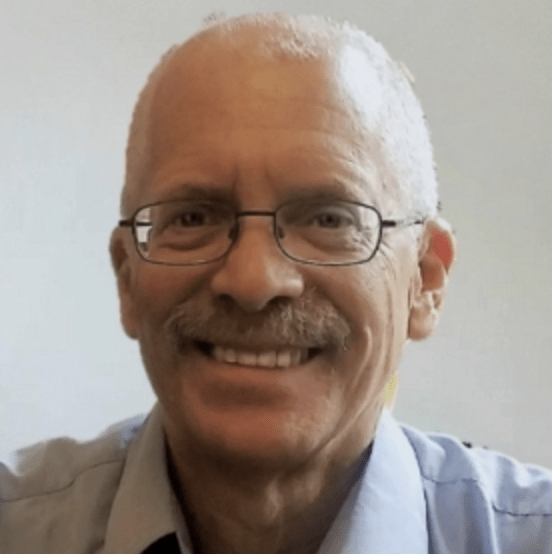MAARC: Policy & Practice Observational and Survey Research Core
Policy & Practice Observational and Survey Research Core (P2S Core)
The goal of the P2S Core is to track dynamic changes in policies related to opioids and provide data infrastructure support to JCOIN, the individual Clinical Research Centers (CRC), and to the greater community of justice and community-based stakeholders. P2S will create a scientifically rigorous and rapid system for (1) gathering data on such policies, (2) the outcomes of the policies inclusive of geospatial outcomes, (3) evaluating the utility of the policies and (4) reporting on this policy research to JCOIN and other policy makers and providing related technical assistance (TA) to the CRCs.
Learn more
- Aim 1. Determine the quality and extent of opioid use policy implementation in order to inform CRCs and other policy makers in effective opioid treatment strategies. The P2S will implement stakeholder surveys with treatment providers and law enforcement agencies (LEAs) and related administrative data, tracking of near real-time changes in justice and non-justice settings across US. For all of our aims, we will use the “Risk Environment Framework” as our conceptual model to guide which variables are included in our varying data collections.
- Aim 2. Assess harm reduction and justice policy outcomes through timely understanding of current and changing practices related to opioids in justice settings. P2S questions include: What are current practices for addressing opioids in justice settings, do they vary across regions, have they changed with the work of the CRCs and has this led to reductions in opioids? What kinds of constraints do opioid users within and outside the justice system face in finding treatment? Is there a difference in the life course of opioid users compared to other users? In addition, to examining risk factors for opioid use and relapse we will explore positive deviance (not simply the absence of risk factors) and why some individuals recover.
- 2a. National-level research: Evolve foundational national survey research (using NORC’s online nationally representative panel of 25,000 households) to support the work of the clinical sites through near-real time tracking of the impact of dynamic changing opioid policies and attitudes towards practices and law related to addressing opioids in justice settings across the US. We will explore pathways to and away from opioid use and addiction and the role the criminal justice system plays in those pathways.
- 2b. Local-level research: P2S would deploy NORC’s nimble national team of 800 field interviewers/survey personnel located across the US, who can be mobilized swiftly, conduct rapid assessments, using quantitative and qualitative data collection tools, to provide near-real time measurement of policy outcomes, practices and laws related to addressing opioids in CRC justice settings.
- Aim 3. Evaluate the utility of harm reduction and criminal justice policies on regional opioid use disorder health outcomes using spatially extended treatment effect analyses.

Bruce Taylor
Lead – NORC
Read Bio
Dr. Bruce Taylor is a Senior Fellow with NORC at the University of Chicago in the Public Health department. He manages research projects and leads business development in the intersecting areas of violence, health and criminal justice for NORC. Dr. Taylor has over 20 years of experience in applied research, field experiments, statistical analysis, measurement, survey design, and program evaluation. He has conducted studies on violence prevention, violent offenders, victimization, policing, and illicit drug markets. Most recently his work has focused on identifying demographic and contextual explanations for a variety of forms of violent and related risky behaviors. He has conducted research funded by a number of federal sources, such as the Bureau of Justice Assistance, the Bureau of Justice Statistics, the Centers for Disease Control and Prevention, the Office of Community Oriented Policing Services, the U.S. Department of Education’s Institute of Education Sciences, the U.S. Department of Health and Human Services, the National Institute on Drug Abuse, the National Institute of Justice, the National Institute of Mental Health, and the Office of Juvenile Justice and Delinquency Prevention. His research has also been supported by a number of state and municipal sources, along with several foundations and other private sources (e.g., Patient-Centered Outcomes Research Institute). Taylor has published his work widely in leading peer-reviewed academic journals such as Addiction Biology, Criminology, Criminology and Public Policy, Drug and Alcohol Dependence, Journal of Adolescent Health, Journal of Experimental Criminology and Journal of Personality and Social Psychology and Prevention Science. Learn more.

Luc Anselin
Co-lead – UC
Read Bio
Dr. Luc Anselin is a native of Belgium, where he did undergraduate work and a master’s degree in economics and econometrics at the Free University of Brussels (VUB). His PhD is from Cornell University in the interdisciplinary field of Regional Science. Anselin comes to the University of Chicago from Arizona State University where he was a Regents’ Professor and held the Walter Isard Chair. He was the founding Director of the School of Geographical Sciences and Urban Planning. He also started and directed the GeoDa Center for Geospatial Analysis and Computation. Before ASU, he was a Professor at the University of Illinois, Urbana-Champaign, where he directed the Spatial Analysis Laboratory in the Department of Geography and was a Senior Research Scientist at the National Center of Supercomputing Applications (NCSA). He previously held appointments at the University of Texas at Dallas, West Virginia University, the University of California, Santa Barbara and the Ohio State University. He has held (joint) appointments in a range of disciplines, including Geography, Urban and Regional Planning, Economics, Agricultural and Consumer Economics, Political Economy and Political Science. Learn more.

Harold Pollack
UC
Read Bio
Dr. Harold Pollack is the Helen Ross Professor at the School of Social Service Administration. He is also an Affiliate Professor in the Biological Sciences Collegiate Division and the Department of Public Health Sciences. He is Co-Director of The University of Chicago Crime Lab and a committee member of the Center for Health Administration Studies (CHAS) at the University of Chicago. Learn more.

Marynia Kolak
UC
Read Bio
Dr. Marynia Kolak, MS, MFA, PhD, is a health geographer using open science tools and an exploratory data analytic approach to investigate issues of equity across space and time. Her research centers on how “place” impacts health outcomes in different ways, for different people, from opioid risk environments to chronic disease clusters. She focuses on quantifying and distilling the structural determinants of health across different environments, tying political ecology models of public health with geocomputational methods and quasi-experimental policy evaluation techniques. She received the 2017 Concordium Innovation Award at AcademyHealth for her open-source visualization of Chicago determinants of health, and “Highest Impact” award in the Prevention Category at the American College of Cardiology 2019 conference for her work in connecting chronic disease rates with social determinants of health. She serves as the Co-I and spatial analytic lead in the ETHIC project investigating the opioid epidemic in Illinois. She is the Assistant Director of Health Informatics and Lecturer in GIScience at the Center for Spatial Data Science, University of Chicago, and serves as a Public Service Intern at the Chicago Department of Public Health. Marynia additionally serves as an Health and Medical Specialty Group (AAG) board member, and chair of the Chicago Public Health GIS Network. She received her Ph.D in Geography at ASU, M.F.A in Writing from Roosevelt University, M.S. in GIS from John Hopkins University, and B.S. in Geology from the University of Illinois at Urbana-Champaign. Learn more.

Andrew Rosenblum
NDRI
Read Bio
Dr. Andrew Rosenblum is the executive director of National Development and Research Institutes (NDRI), Inc., a not-for-profit research firm that conducts substance use and other bio-behavioral research nationwide and throughout the world. He also serves as director of NDRI’s Institute for Treatment and Services Research. His scientific contributions primarily include development and evaluation of psychosocial interventions (including eLearning and eTherapy applications) and prevalence surveys. Many of his recent studies have focused on chronic pain, prescription opioid misuse, and medication assisted treatment such as methadone and buprenorphine. He has published more than 100 peer-reviewed articles and has served as principal investigator on several NIDA funded studies. Learn more.